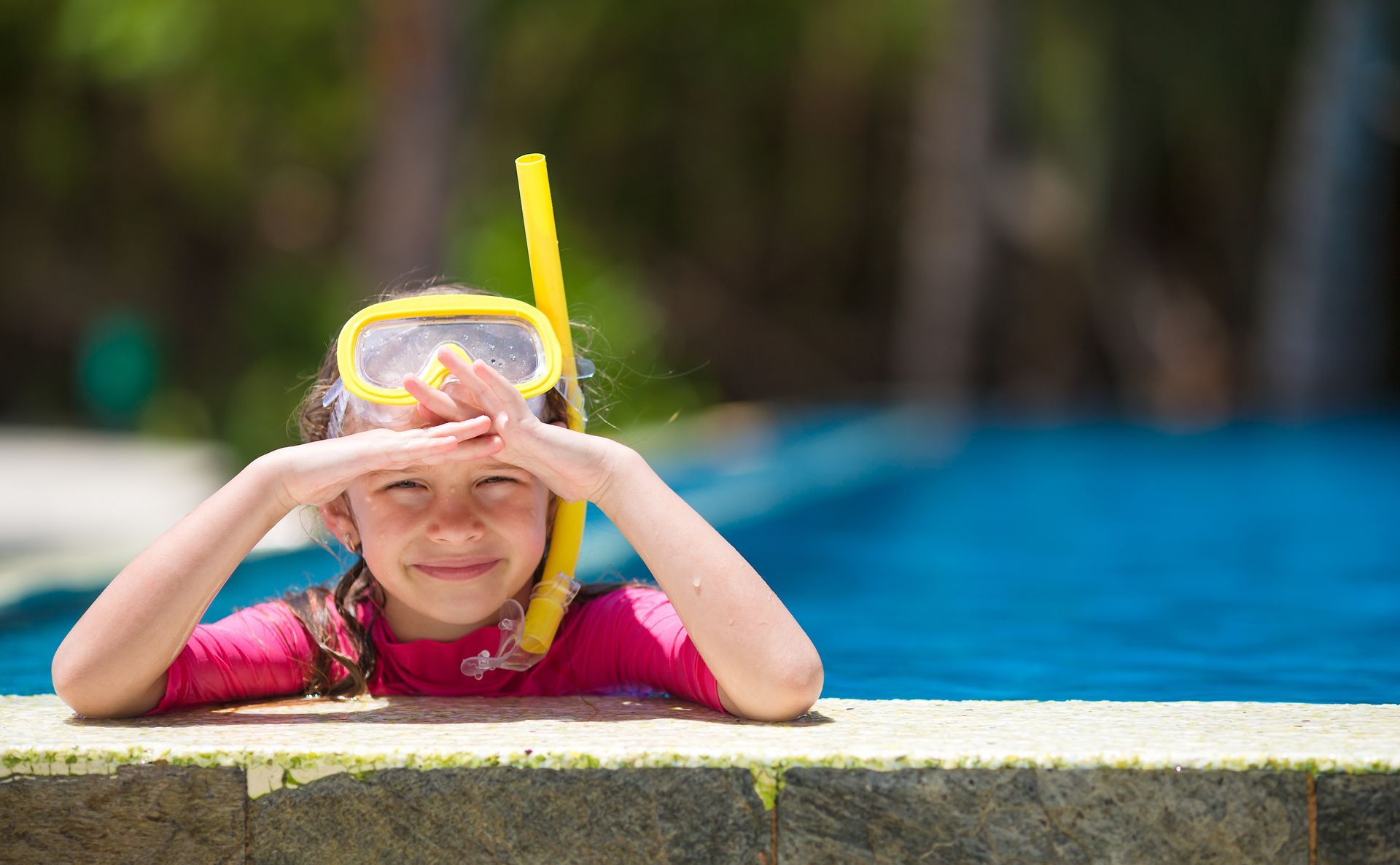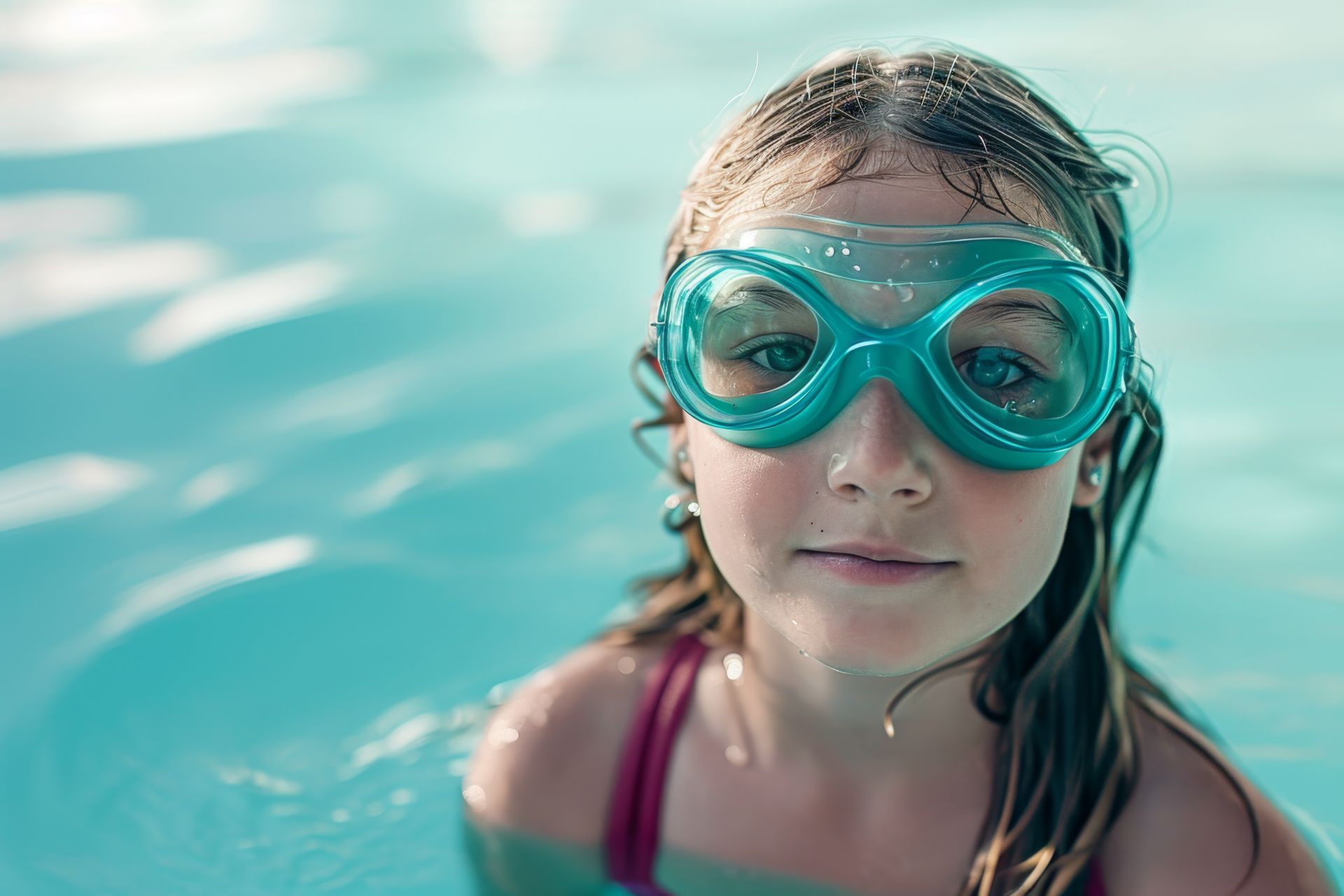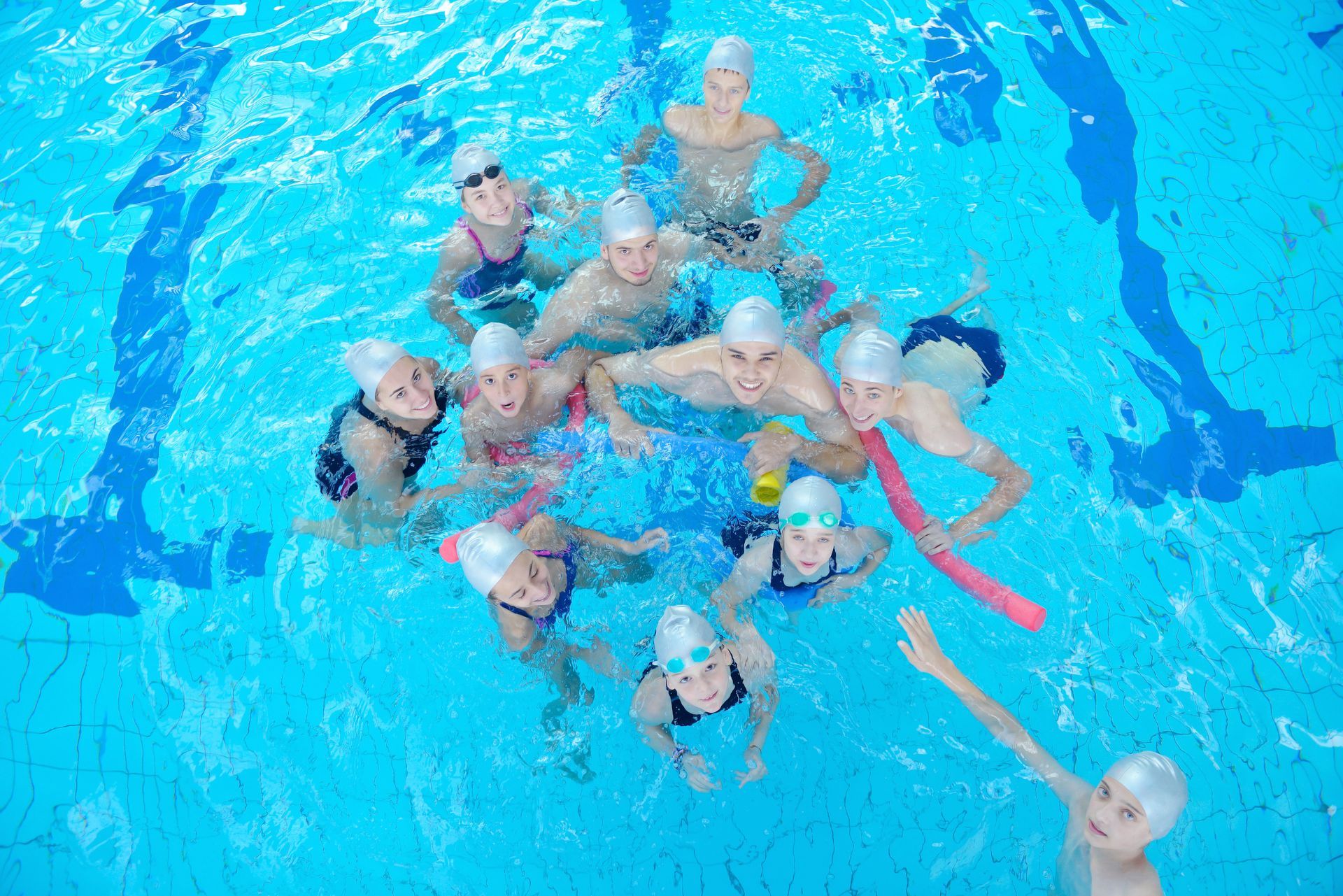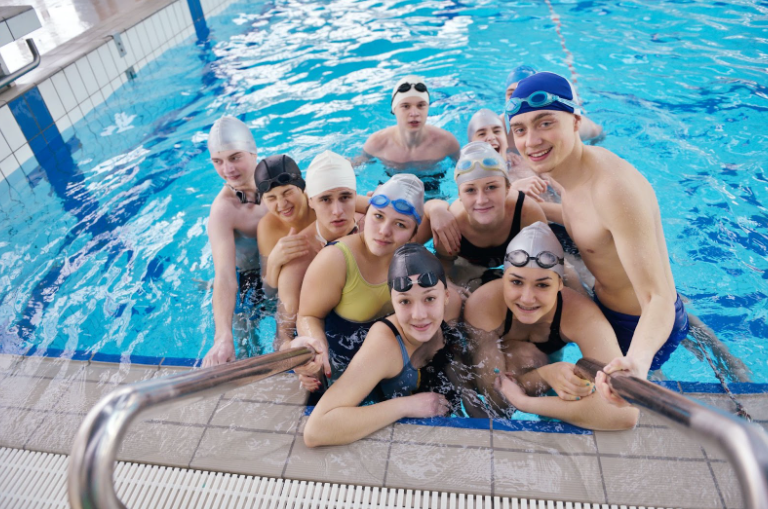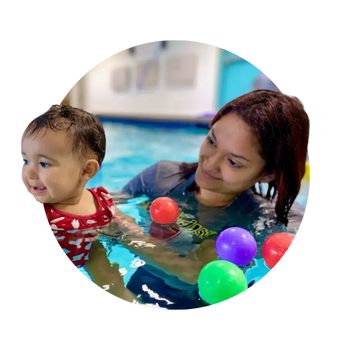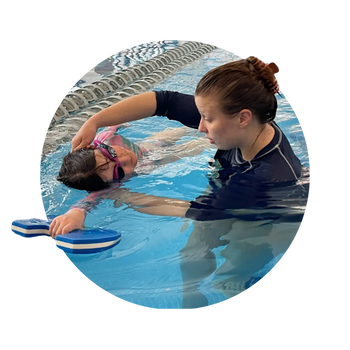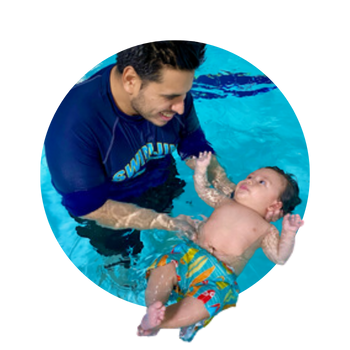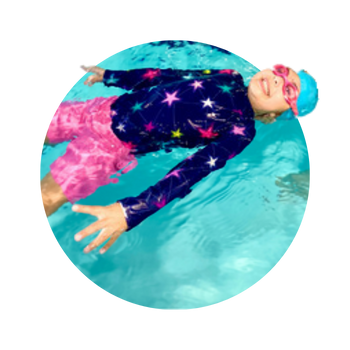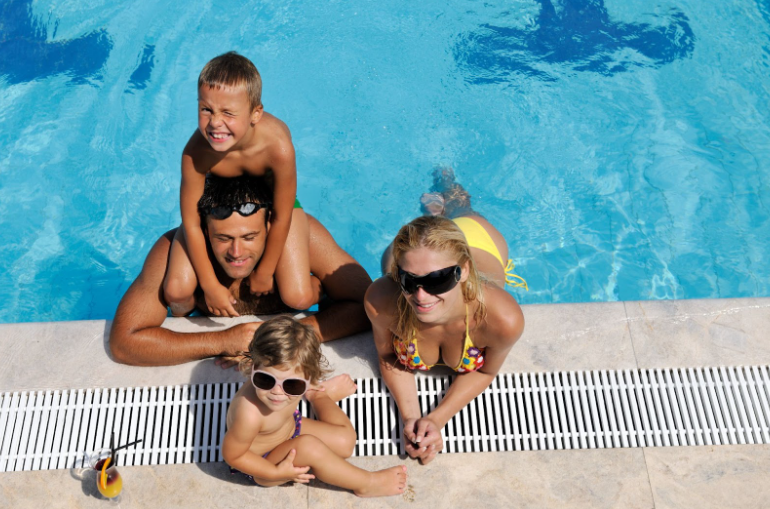Find the Right Class
The Benefits of Learning with SwimJim
SwimJim offers a premier swimming education that stands out for its personalized attention, comprehensive programs for all ages, and a strong emphasis on life-saving skills. With a low instructor-to-student ratio, swimmers receive tailored guidance to progress at their own pace, making learning fun and effective. Whether you're a toddler dipping your toes in for the first time or an adult refining your strokes, SwimJim's wide range of classes ensures there's something for everyone.
Convenient locations and flexible schedules make fitting swimming lessons into your busy life a breeze, while strict safety protocols and a clean environment prioritize health. At the heart of SwimJim's approach is a team of caring, experienced instructors who not only teach swimming but also instill confidence and a love for the water. Choose SwimJim for a swimming education that's about more than just strokes—it's about building life-saving habits and a lifelong passion for swimming.
SwimJim schools provide a comprehensive, enjoyable, and safe swimming education, emphasizing not only the development of swimming skills but also the importance of water safety, making it an ideal choice for anyone looking to learn how to swim.
Personalized Attention
SwimJim maintains a low instructor-to-student ratio, ensuring each swimmer receives the personalized guidance necessary to develop confidence and proficiency in the water.
Comprehensive Programs
From infant classes to advanced and adult swimming lessons, SwimJim offers a wide range of classes that cater to all ages and skill levels, facilitating a tailored learning experience.
Life-Saving Skills
The curriculum is focused on teaching swimming and on instilling water safety awareness, which are are life-saving skills.
Progress at Your Own Pace
SwimJim's teaching method emphasizes learning at the individual's pace, making swimming a fun and stress-free experience. This approach helps students to comfortably and effectively master each new technique.
Convenient Locations and Schedules
With multiple locations in New York and Texas and flexible class schedules, SwimJim makes it easy for students to incorporate swimming lessons into their busy lives.
Healthy and Safe Environment
SwimJim enforces strict facility-specific rules, including cleanliness standards and safety protocols, to ensure a healthy and safe environment for all swimmers.

The SwimJim mobile app simplifies managing your child's swim classes. Easily sign up for classes, check schedules, and track progress with just a few taps on your phone. Enjoy real-time updates and notifications for any changes or special events. The app also makes payments quick and secure, giving you peace of mind and more time to enjoy your child's swimming.
Download Our App!
What age groups do you cater to for swimming lessons?
SwimJim offers swimming lessons for a wide range of ages, starting from newborns all the way up to pre-team level swimmers and adults. Our programs are designed to support learners as they progress from basic skills to competitive swimming.
How can I register my child for swimming lessons?
Registration can be completed through our customer portal or by contacting each location via phone or email. We offer free trials for your first lesson with us and once you register we will require a non-refundable registration fee, which varies by state.
What are the prerequisites for enrolling in a course?
SwimJim welcomes learners of all skill levels. There are no prerequisites for beginners, but certain levels and classes may have skill requirements. Our evaluation process ensures each swimmer is placed in the class that best matches their abilities.
How do you assess the skill level of new students?
New students undergo an initial evaluation to determine their comfort and skill level in the water. This helps us place them in the appropriate class where they can learn effectively and safely.
What qualifications do your swimming instructors hold?
All SwimJim instructors are thoroughly trained and certified, possessing the necessary skills and knowledge to teach swimming effectively. They are also equipped with CPR and first aid certifications to ensure the utmost safety during lessons.
Do I need to be present during my child's class?
Yes. Parents need to reimain in the facility during the duration of the lesson.
How can I track the progress of my child?
You can track your child's progress through our 5-star grading system, which evaluates their advancement within each level. Access to detailed progress reports is available via the customer portal, allowing you to see updates and achievements at any time.
How many students are in each class?
SwimJim maintains small class sizes to ensure personalized attention and effective learning. While the exact number may vary, our focus is on keeping ratios low to enhance the instructional experience.
How long are the classes?
Parent-child and learn-to-swim classes are 30 minutes long, catering to the attention span and engagement of young learners. Our advanced classes are an hour. Frequency can vary, with options for multiple lessons per week to accelerate learning and progress.
What should my child bring to their swimming lessons?
Swimmers should bring a proper swimsuit and a towel. Goggles are optional and those with long hair are encouraged to wear a swim cap. Non-potty-trained children must wear a Happy Nappy Swim Diaper. Please avoid bringing food and drinks onto the pool deck and remove all Band-Aids before swim class.
Do you offer make-up classes for missed lessons?
Yes, SwimJim offers one complimentary make-up class per month for swimmers swimming once a week. Make-up classes can be scheduled through the parent portal, with at least one hour's notice required before the missed class.
To cancel a class, please submit a "future absence" through the customer portal at least one hour before the class starts. This allows your child to receive one complimentary make-up token per month if they swim once a week. Note that phone calls are not accepted for future absences, and make-up lessons are reserved for actively-enrolled students and cannot replace regularly scheduled classes.
How do you ensure the safety of students during lessons?
Safety is our top priority. Our pools are equipped with teaching platforms for beginners, and all instructors are CPR and first aid certified. We maintain strict supervision and small class sizes, and parents are required to remain onsite during lessons. Our conduct and hygiene policies, such as trimmed nails and proper swimwear, further ensure a safe and healthy environment for all swimmers.
How am I billed for swim lessons?
Billing for swim lessons includes an annual registration fee and a monthly charge billed on the first of each month. The total monthly cost varies depending on the number of classes your child attends.
Can I pause or cancel my enrollment?
SwimJim offers a flexible cancellation policy to accommodate unexpected events.
For extended medical absences, a doctor's note is required for tuition credits, as refunds are not provided. Should you need to withdraw for an extended period due to illness or travel, please contact our office for assistance. All cancellations for monthly billing should be made through the parent portal by the last day of the current month to avoid charges for the following month.
Unfortunately, at this time we do not pause or hold enrollments.
